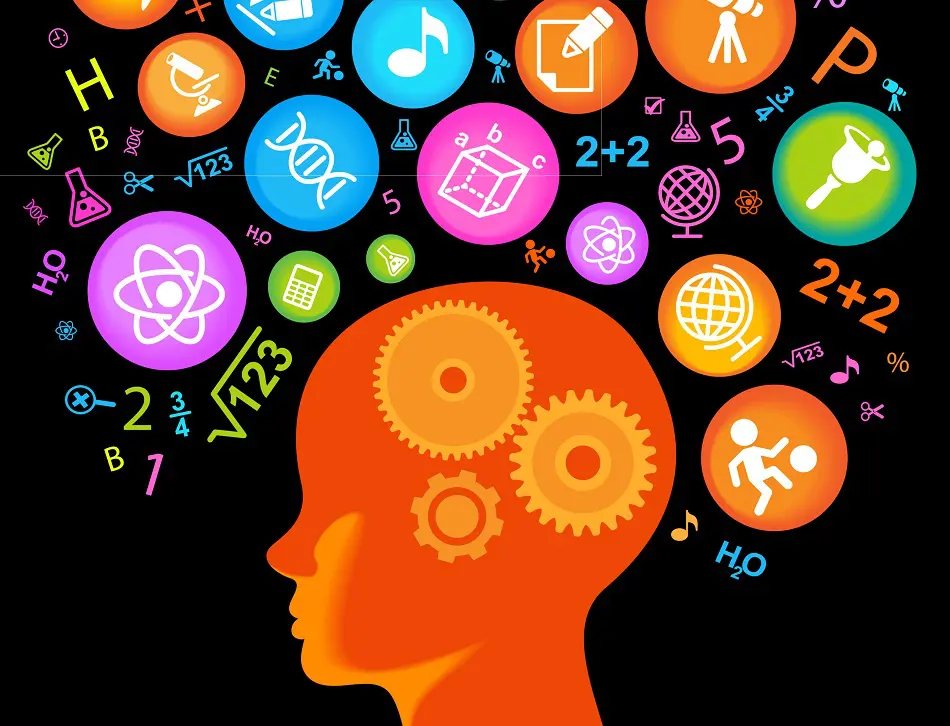What are the mental health, benefits of exercise?
"Mind and Body in Sync:
The Transformative Powers of Exercise on Mental Health"
The mental health benefits of exercise are numerous and crucial to our overall well-being. Mental health, defined as a state of mental well-being that enables people to cope with stress, is an indisputable and urgent need in today's society. The World Health Organization (WHO), on its official website, highlights the importance of mental health and offers various services such as scam alerts, advice for the public, and advice for health workers.
According to WHO, mental health is characterized by a person's ability to realize their own abilities, cope with the normal stresses in life, work effectively, and contribute to their community. It plays a vital role in how we think, feel, and act, and influences our response to stress, relationships with others, and decision-making skills.
Incorporating physical activity into our daily routines is an effective way to take care of our mental health. Regular exercise has been shown to alleviate symptoms of depression and anxiety by triggering the release of endorphins, which are natural brain chemicals that promote feelings of well-being. Additionally, exercise stimulates the production of natural cannabis-like brain chemicals called endogenous cannabinoids, further enhancing our sense of well-being.
In summary, exercise is an essential tool for promoting mental health and managing stress. By engaging in regular physical activity, we can enhance our overall well-being and enjoy the many mental health benefits it brings.
Here are 10 benefits of exercise for your mental health:
A better night's sleep is essential for our overall well-being and mental health. We've all experienced the struggle of waking up on the wrong side of the bed after a restless night. The consequences can be significant, with grumpiness, irritability, and a generally negative mood dominating our day. However, the impact of sleeplessness goes beyond just mood swings.
Research has shown that prolonged sleep deprivation can be linked to various mental health conditions, including depression and anxiety. That's where regular exercise comes into the picture. Engaging in physical activity can significantly improve the quality of our sleep, thereby supporting healthy brain function.
Exercise triggers the release of feel-good chemicals in our body, helping to reduce pre-sleep anxiety and alleviate common sleep problems like restless leg syndrome, insomnia, and sleep apnea. Moreover, physical activity can also increase the amount of deep sleep we experience, facilitating our recovery from mental exertion.
So, if you're struggling with sleep issues, incorporating exercise into your routine could be the key to a better night's sleep and improved mental well-being.
Exercise is not just beneficial for your physical health, but also sharpens your thinking. If you're eager to enhance your focus and concentration, incorporating exercise into your routine is highly recommended. Numerous scientific studies have demonstrated that after engaging in physical activity, your ability to concentrate improves significantly. So whether you prefer a brisk walk, a workout at the gym, or a yoga session, exercising can be a powerful tool for sharpening your thinking skills.
Moreover, exercise offers additional long-term benefits for your brain. Regular physical activity promotes improved blood flow to the brain, supplying it with essential nutrients and oxygen. This increased blood flow aids in combating brain aging and may even reduce the risk of developing Alzheimer's disease. Additionally, exercise stimulates the production of important proteins in the brain, which can further enhance cognitive function and protect against neurodegenerative conditions.
In summary, by incorporating exercise into your routine, you can not only boost your focus and concentration in the short term but also safeguard your brain health in the long run.
Starting your day with some physical activity can significantly improve your energy levels. When you engage in exercise, such as a brisk walk or a quick jog, it stimulates the release of endorphins in the brain. Endorphins, often called 'feel-good hormones', have a remarkable ability to reduce pain perception and trigger positive sensations in the body.
But that's not all – endorphins also play a crucial role in increasing energy levels. By boosting the production of these hormones through physical activity, you can experience a surge of energy that helps you tackle the challenges of the day with enthusiasm and vitality.
Regular physical activity has additional benefits on cardiovascular health, leading to improved endurance throughout the day. When your cardiovascular system functions optimally, daily activities become easier and do not drain your energy as much. You'll find yourself feeling less sluggish at the end of the day, with more energy to spare.
So, start your day with a workout or even a simple stretching routine, and you'll notice a significant improvement in your energy levels, making you feel more alive and ready to conquer the world!
Regular physical activity is essential for maintaining good physical health, and its benefits extend beyond just the body. Engaging in exercise not only promotes mental well-being but also reduces the risk of various physical health issues. By incorporating regular physical activity into your routine, you can effectively manage your weight, enhance bone density and muscle strength, as well as improve your ability to perform daily tasks.
Studies conducted by Dementia Australia have shown that individuals who exercise on a consistent basis are less likely to encounter heart disease, stroke, high blood pressure, and type 2 diabetes—all of which contribute to an elevated risk of developing dementia. By reducing the occurrence of these health conditions, exercise becomes a proactive measure in safeguarding against the potential onset of cognitive decline and related issues.
In summary, embracing regular physical activity not only supports your physical fitness but also plays a crucial role in minimizing the risk of various physical ailments, including those associated with an increased likelihood of developing dementia.
Regular exercise not only benefits your physical health but also plays a crucial role in improving your confidence and self-esteem. When we engage in physical activities, our bodies release endorphins, often referred to as "feel-good" hormones, which contribute to an overall positive mood and sense of well-being. This heightened state of mental health can have a profound impact on our self-perception.
Research has consistently shown that exercise leads to significant increases in self-esteem. By dedicating time to exercise and taking care of our bodies, we demonstrate self-care and self-respect, which naturally bolsters our confidence. Moreover, physical fitness allows us to feel more comfortable in our own skin, enhancing our body image and fostering a positive attitude towards ourselves.
Feeling better physically and mentally as a result of exercise inevitably spills over into other aspects of our lives, allowing us to approach challenges with increased self-assurance and a positive mindset. So, whether it's hitting the gym, going for a run, or practicing yoga, incorporating exercise into your routine can be a powerful tool for boosting your confidence and cultivating a strong sense of self-worth.
Looking for a mood booster? Look no further than exercise! You've probably heard of the "runner's high," that incredible feeling of pure bliss during and after a workout. But what exactly causes this euphoria? Well, it all starts with some amazing chemicals that are released when you're active.
When you exercise, your body stimulates the production of happiness-inducing chemicals like endorphins, endocannabinoids, and dopamine. These wonderful substances not only improve your mood but also help to reduce anxiety and promote feelings of calm. It's like nature's very own happiness cocktail!
So, whenever you're feeling down or stressed, why not lace up your sneakers and go for a run, hit the gym, or engage in any form of physical activity? Not only will it give you a healthy and fit body, but it'll also give your spirits a much-needed lift. Remember, happiness is just a workout away!
7. A stress release
We all experience stress in our lives, and it's important to find ways to release that stress before it takes a toll on our physical and mental health. One effective stress release method recommended by health care professionals is exercise. Engaging in physical activity helps to reduce the levels of stress hormones in our bodies, such as adrenalin and cortisol. Not only that, but it also has a positive impact on our cardiovascular, digestive, and immune systems, providing further protection against the harmful effects of stress.
To implement exercise as a stress release, you can start your day with a refreshing morning walk along the beach, allowing the calming sound of the waves and the beauty of nature to ease your mind. Alternatively, an afternoon run or engaging in a game of tennis with a friend can divert your attention from your daily worries, keeping you busy with something enjoyable. By incorporating exercise into your routine, you can take a much-needed break from your usual activities and find relief from stress in a healthy and fulfilling way.
Looking to boost your memory? Look no further than regular physical activity. Engaging in activities that get your heart pumping and keeping active can have a profound impact on your brain health.
By participating in regular exercise, you are not only keeping your body fit but also strengthening your memory. Scientific research has shown that exercise can lead to the growth of the hippocampus, the part of the brain responsible for memory and learning. This means that by staying physically active, you are actually improving your brain's ability to retain and process information.
Furthermore, as we age, exercise becomes even more critical for our memory and thinking skills. It has been observed that physical activity can alter the brain's structure, offering protection against cognitive decline. Whether it's aerobic exercises, resistance training, or mind-body exercises like yoga and tai chi, all types of activity can contribute to cognitive brain health.
So, if you're looking to enhance your memory, incorporate regular physical activity into your routine. Your brain will thank you for it by improving processing speed, enhancing function, and preserving your precious memories.
According to the Australian Institute of Health and Welfare, anxiety affects a significant portion of the Australian population, with 1 in 5 individuals experiencing some form of mental illness every year. Fortunately, there is a natural remedy that has been proven effective in alleviating anxiety: exercise. Engaging in rhythmic activities that involve both your arms and legs, such as walking, running, swimming, martial arts, or dancing, can have a profound impact on reducing anxiety levels.
To optimize the benefits of exercise, it can be helpful to incorporate mindfulness techniques into your routine. By focusing on your breathing or the sensations of the environment, like the soothing touch of the wind on your skin during walks, you can enhance the anxiety-relieving effects of exercise.
For additional support, Beyond Blue offers a variety of relaxation exercises on their website, including downloadable audio files designed to accompany your exercise sessions. These resources provide valuable guidance in harnessing the power of physical activity to alleviate anxiety and promote overall mental well-being.
Engaging in regular exercise not only improves your physical health but also has a positive impact on your mental well-being, notably by reducing social isolation. Various physical activities, such as walking, swimming, and cycling, provide opportunities to venture into more social settings like the beach, community walking tracks, and gyms. By immersing yourself in these environments, you can combat feelings of loneliness and isolation, connecting with like-minded individuals. Embracing these social opportunities may even lead to the formation of brand new friendships or rekindling relationships that may have been lost over time. Ultimately, exercise serves as a powerful tool to break free from the confines of social isolation, creating a path towards a more connected and fulfilling life.
Getting started
Getting started with incorporating physical activity into your routine can be easier than you think. According to Australian guidelines, it's recommended to be active every day in as many ways as possible. Rather than viewing movement as an inconvenience, consider it as an opportunity to improve your overall well-being.
One way to seamlessly integrate exercise into your daily life is by incorporating it into your routine. Whether it's taking the stairs instead of the elevator or walking to nearby places instead of driving, small changes can make a big difference.
Another great way to stay motivated is by finding a workout buddy. Exercising with a friend or family member not only provides accountability but also adds an element of fun to your fitness journey.
Remember to choose activities that you genuinely enjoy. Whether it's dancing, swimming, or playing a sport, doing something you love will make it easier to stay committed.
If possible, aim to include regular vigorous exercise for added health benefits. This can include activities like running, cycling, or high-intensity interval training.
By following these recommendations, you can begin incorporating physical activity into your routine in a way that suits your preferences and lifestyle. Start small, stay consistent, and enjoy the process of becoming more active and healthier.
Physical activity ideas
Looking for some physical activity ideas to get moving and stay active? We all know that exercise is more enjoyable when it's something we like doing. Luckily, there are numerous options available to suit everyone's preferences. Here are some ideas to consider:
Brisk walking:
A simple and effective way to increase your heart rate and boost overall fitness.
Swimming:
Dive into the pool and enjoy a low-impact and full-body workout.
Aerobics or water aerobics:
Join a class and get your heart pumping with energetic movements.
Golf (without a cart):
Enjoy a leisurely round of golf while getting in some walking and swinging.
Cycling:
Hit the road or try spinning classes for a great cardiovascular workout.
Yard and garden work:
Tackle outdoor chores like gardening and mowing, which engage your muscles and burn calories.
Tennis:
Grab a racket and challenge a friend or join a local club for some competitive fun.
Weight, strength, or resistance training:
Build muscles and increase overall strength with a variety of exercises.
Climbing stairs:
opt for stairs instead of elevators or try stair climbing at a nearby stadium for a challenging workout.
Tai chi:
Embrace the gentle flowing movements of this ancient martial art to improve balance and flexibility.
Lawn bowls:
Engage in this social and strategic game individually or with a team for a fun and active time.
Yoga:
Enhance flexibility, strength, and mindfulness through various yoga poses and breathing techniques.
Dancing:
Join a dance class or throw on your favorite tunes at home to groove and have a blast while staying fit.
Remember, the key is to find activities that you enjoy, making it easier to stay motivated. So, choose your favorite ones from the above suggestions and start incorporating them into your regular routine. Get moving, have fun, and stay healthy!










Comments